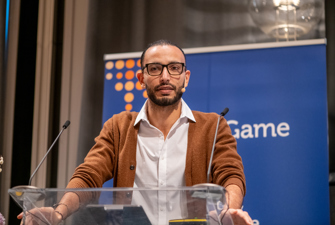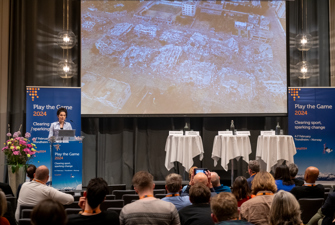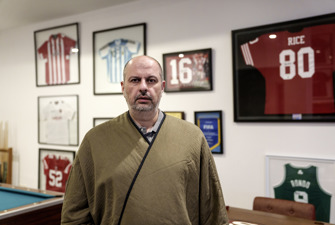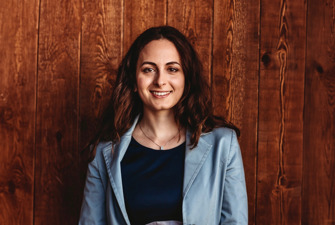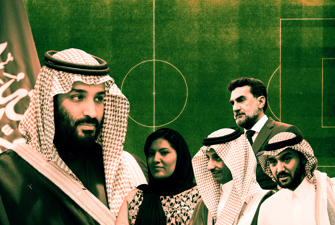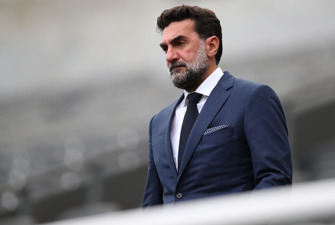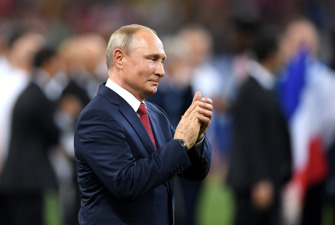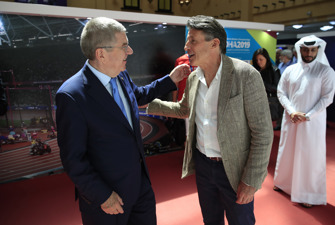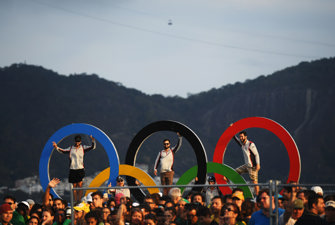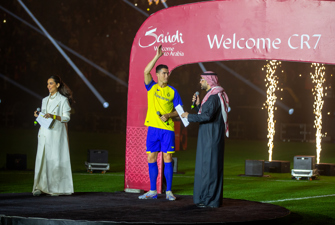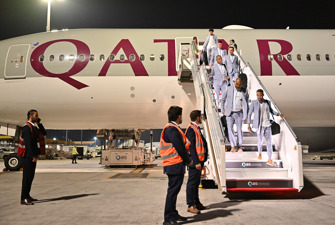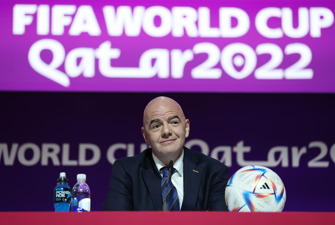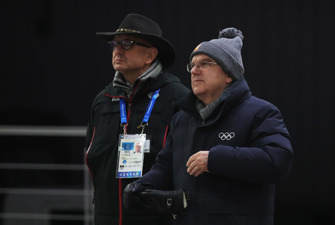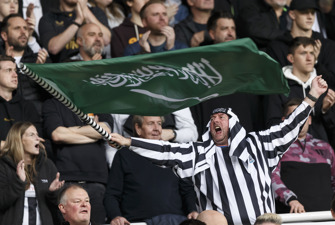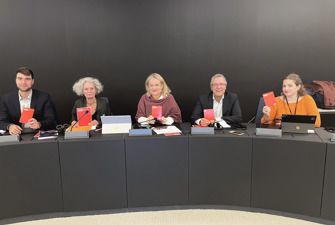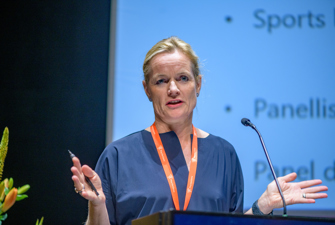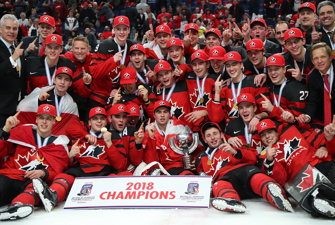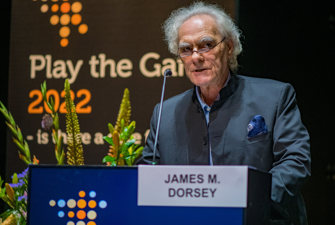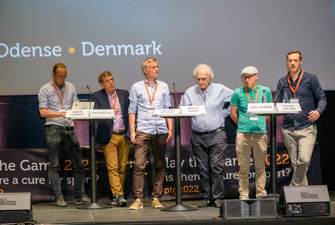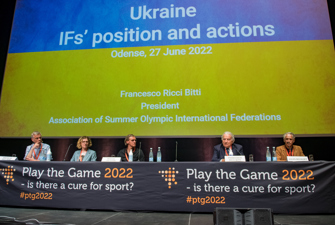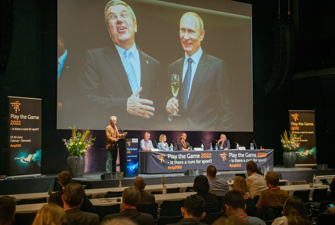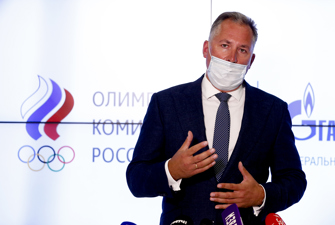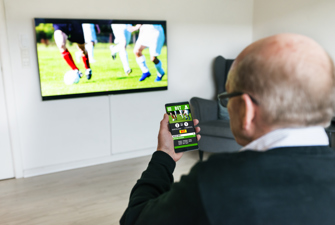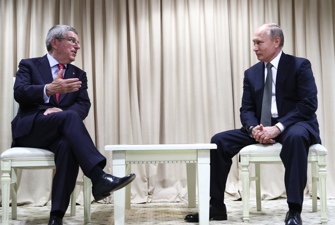Putin’s use of sporting events as a domestic policy tool
Sporting events in Russia are directly linked to the formation of a new Russian national idea and identity under Putin’s rule and have become an important tool in forming the narrative of the nation and establishing a meaningful relationship between the past, present and future, writes Stanis Elsborg in this analysis on sport and identity in Russia.
The following analysis is a brief summary of a larger research conducted by the author.
Since Vladimir Putin took power in 1999, the Russian Federation has invested increasingly in the sports industry exemplified by being host to the 2013 Universiade in Kazan, the 2014 Winter Olympics in Sochi and the 2018 FIFA World Cup. These sporting events on national soil are directly linked to the formation of a new Russian national idea and identity under Putin’s rule. They have become an important tool in forming the narrative of the nation and establishing a meaningful relationship between the past, present and future.
An international or domestic agenda?
The most widely used argument to describe Russia’s intention behind hosting sporting events is Putin’s desire to boost the country’s international image and in the last two decades, the major sporting events taking place in Russia have often been referred to as a symbol of Russia’s return to great power status. This one-sided discourse in describing Russia’s eagerness to host sporting events lacks what seems be the most important agenda: a much more domestically oriented dimension. Fair to be said, the Olympic torch for the 2014 Winter Olympics in Sochi was shaped like a bird’s feather, as a reference to the firebird phoenix. The bird symbolises good luck and fortune in Russian folklore but it can also be seen as a symbol of Russia’s resurrection as a great power since the fall of the Berlin Wall in 1989: the phoenix bird who rises from its ashes, just like Putin will “rise Russia from its knees”, once again making Russia a political and sporting power.
However, the Russian state has especially used the above-mentioned sporting events in a domestic policy context to influence the national identity, which has been of high importance for Putin since he took power in 1999 and above all from his re-election in 2012: “For us (and I am talking about Russians and Russia), questions about who we are and who we want to be are increasingly prominent in our society (…) the question of finding and strengthening national identity really is fundamental for Russia,” said Putin at the Valdai International Discussion Club in 2013.
The dissolution of the Soviet Union in 1991 left the Russian Federation in the 1990s in an economic, political and identity crisis. Therefore, the creation of a new national identity has played a major role for the Putin administration since the beginning of his presidency. In this process, elite sport and hosting big sporting events became a driving factor.
The main source material for this article consists of the opening ceremonies (OC) from the 2013 Universiade in Kazan (2013 OC) and the 2014 Winter Olympics in Sochi (2014 OC), as well as the introduction videos of the host cities for the 2018 FIFA World Cup. The following analysis presents three central themes in the historical narrative of the new face of Russia identified in relation to the three sporting events: 1) Peter the Great, 2) The Russian Orthodox Church and 3) elite sport and space policy.
Peter the Great
The Russian Tsar Peter the Great (1672-1725) has become a central figure in Putin's narrative about Russia's former greatness. In the 2013 OC, he is depicted in the form of the famous equestrian statue ‘The Bronze Horseman”, located in Putin's birthplace St. Petersburg, a city founded by Peter the Great in 1703 and afterwards becoming the imperial capital of Russia. In relation to the 2018 World Cup he decorates the 'signature look' of St. Petersburg, and in the presentation video of the city ‘The Bronze Horseman’ is shown once again. The Tsar is also seen in the video of Moscow with images of the 98-meter-high 'Peter the Great'-statue, an iconic illustration of the Tsar and his military fleet.
In an opening video of the 2014 OC, Peter the Great was highlighted during the initial celebration of the Cyrillic alphabet under the letter "И" and the words "Russian Empire" with his military fleet in the background. The portrayal of the Tsar in this rather militaristic and imperialistic manner continued later in the OC where a 4,5-minute long section was dedicated to the Tsar. Here, a huge map of St. Petersburg was shown on the stadium floor and a computer-animated representation of ‘The Bronze Horseman’ was leading the way for a group of marching soldiers giving the illusion of carrying weapons while cannons were firing loudly.
The historical tribute of Peter the Great is not found in Putin’s inspiration of Peter the Great’s orientation towards the West, but rather by his attempt to secure the national borders and expand the influence of Russia. The visual portrayal of the Tsar can indeed be interpreted as Putin’s indirect signal of Russia’s willingness to protect and expand its geopolitical interests along its borders, just as the Tsar did during his reign.
The Russian chess grandmaster and former world chess champion Garry Kasparov brilliantly encapsulates the resemblance between Putin and Peter the Great in his critical book on Putin’s rule, ‘Winter is Coming’: “Putin wanted the Sochi Olympiad to be his Peter the Great moment, his beloved Soviet summer resort town turned into an international jewel the way St. Petersburg was built into an imperial capital practically from scratch.”
The Russian Orthodox Church
“The sleeping giant of Russia is awakened, ready for change and growth (…) Simultaneously, something is building below: the dancing, helium-filled inflatables have suddenly become the onion domes, tent roofs and gables of Russian architectural icon St. Basil’s Cathedral.“
This citation is from the official media guide from the 2014 OC. It is a clear example of how the state (the sleeping giant) under Putin’s rule has attempted to incorporate religious values in the daily life of Russia. The religious beacon in Putin’s new Russia is the Russian Orthodox Church (ROC). The ROC was suppressed during Soviet times but under Putin’s rule it has once again gained a very prominent role, recalling the famous tsarist tripartite from the 19th century: orthodoxy, autocracy and nationality.
The ROC is particularly prominent in the 2014 OC and in regards to the 2018 World Cup it is represented in all the presentation videos of the host cities. According to sociologist Alexandra Yatsyk, the absence of the ROC in the 2013 OC can be ascribed to Kazan historically being seen as embracing both Orthodox and Islamic beliefs. In the opening video of the 2014 OC, the ROC is portrayed in the form of the St. Basil’s Cathedral in the Red Square under the letter "Ы", meaning "we" in English. St. Basil’s Cathedral is even more apparent later in the ceremony under the section called 'Festivity', where a balloon-like St. Basil’s Cathedral is built - a manifestation of the mutual relationship between church and state in Russia under Putin's rule.
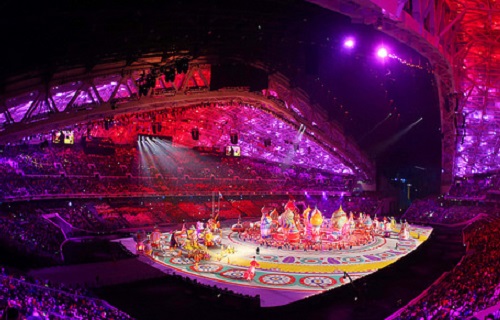 Inflatable balloons symbolising the St. Basil’s Cathedral and the close relationship between church and state in today’s Russia. The picture is from the opening ceremony of the 2014 Winter Olympics in Sochi. Photo: Korea.net/The Korean Olympic Committee/Flickr
Inflatable balloons symbolising the St. Basil’s Cathedral and the close relationship between church and state in today’s Russia. The picture is from the opening ceremony of the 2014 Winter Olympics in Sochi. Photo: Korea.net/The Korean Olympic Committee/Flickr
Putin himself also represents a believing orthodox and regularly appears on social media and television with officials from the ROC. Putin will not only consolidate the Russian Federation in its past, but wants the entire regime to be built on the church's cultural legitimacy: "The process of reuniting the Russian Orthodox Church is much more than a process internal to the church; It is the symbol of the rebirth and the reunification of the Russian people themselves," said Putin in 2004.
An international powerhouse in sport and space
The most clear and politically significant themes in relation to all the sporting events are a tribute to elite sports and the country’s impressive space program. Just as in Soviet times, Putin is once again increasingly using elite sport and space policy as markers of a new national greatness.
As a sign of Putin’s ambition to maintain Russia’s role as a superpower in space, the Olympic torch was on its first trip in outer space prior to the 2014 Winter Olympics in Sochi. Photos from the Olympic torch’s trip to the International Space Station (ISS) were shown on large screens during the 2014 OC, including cosmonauts “posing with the Olympic torch during a Nov. 9, 2013 spacewalk outside the International Space Station”.
Additionally, the official emblem for the 2018 World Cup was presented to the public in a live broadcast from the ISS with three Russian cosmonauts showing the emblem to the Russian people on the state-owned television channel Russia 1. The cosmonauts also wished the Russian people and the Russian soccer players good luck from the ISS just before the opening ceremony of the 2018 World Cup and tested the official ball inside the space station.
Both the 2013 and 2014 OC were filled with references and tributes to the Soviet space program, such as Sputnik 1, the first artificial Earth satellite launched in 1957; Lunokhod, the first of two unmanned lunar rovers that landed on the Moon by the Soviets in 1970; Tsiolkovsky, a Russian rocket scientist and pioneer of the astronautic theory, and not least the national hero Yuri Gagarin, who in 1961 became the first human being to orbit the earth and as a result was decorated as a “Hero of the Soviet Union”.
In the 2014 OC this was clearly illustrated in the second half of the artistic sections, which focused on the Soviet society post World War II. During the section ‘Moscow / The Dream’ huge elements of the 1937 monument communist sculpture 'Worker and Kolkhoz woman' flew through the air and, at the centre of the stadium, a large group of dancers in spacesuits gathered on the floor. Gagarin was remembered with the words: "First man in space" followed by "Гагарин" - Gagarin's name in Cyrillic. The cosmonauts were then replaced by Olympic athletes accompanied by the Olympic Hymn from the 1980 Olympic Games in Moscow.
The Russian cosmonaut Valentina Tereshkova, who was the first woman in space was also celebrated and remembered, by being one of the eight flag-bearers of the Olympic flag, along with five other cosmonauts. For the 2014 OC, Russian cosmonauts also received the honour of hoisting the Russian flag to the tunes of the Russian national anthem. The closing ceremony in 2014 also contained references to Gagarin and Tereshkova as two of the main characters were named after the two Russian legends.
In the 2014 OC’s final and perhaps most spectacular scene, the Olympic Stadium was transformed into a “galaxy, where giant Olympic Gods reign and watch over us from the night sky”, as stated in the official media guide.
The Soviet program was also seen in the logo of the 2018 host city Moscow, which was represented by the Yuri Gagarin Monument. The tribute to the Soviet space programme continued in the host city of Samara. The city’s logo contained an image of the Cosmic Samara Museum that houses some of the Soviet era's most iconic contributions to space technology. Also, the official release of the 2018 FIFA World Cup poster paid a strong homage to the Soviet space program and Gagarin.
The 2019 Universiade – the narrative continues
It seems that the narrative continues with the 29th Universiade in Krasnoyarsk next year. The mascot of the Universiade has already been on a trip to ISS in outer space. The mascot named U-Laika also recalls the famous Soviet space dog Laika who became the first animal to orbit the Earth.
In a short video of the torch’s trip through Moscow, the historical highlights are the St. Basil’s Cathedral and the monument of ’Peter the Great’. The ROC is also highlighted in the other videos following the torch through the Russian Federation.
Recently, the facade of the Bolshoi Theater in Moscow became part of a Winter Universiade 2019 light show that featured both space technology, the firebird phoenix, the Russian Bear, U-Laika and other symbols of importance to Russian culture.
Thus, it is clear that Russia once again will use a big sporting event on national soil to influence its national identity. In this process, the narrative highlights special historical contributions to society and historical personalities from the tsarist and soviet era. Especially elite sport and space policy, as well as old conservative and religious values, also play an important role in Putin’s resurrection of Russia as a superpower and in the creation of the national identity. The sporting events appear to be a Potemkin village for Putin, who deliberately uses them in his domestic policy.
Futher reading
Elsborg, S. (2018). Putin’s use of sporting mega-events as an “arena for historical memory” (in Danish)
Bonde, H. (2017). Putin's 'Somacracy' and his Sports-political Forum in Sochi: An essay interpolation of the work of J.A. Mangan.
Yatsyk, A. (2016). Regional Dimensions of Global Games: The Case of Sports Mega events in Tatarstan (access needed)














